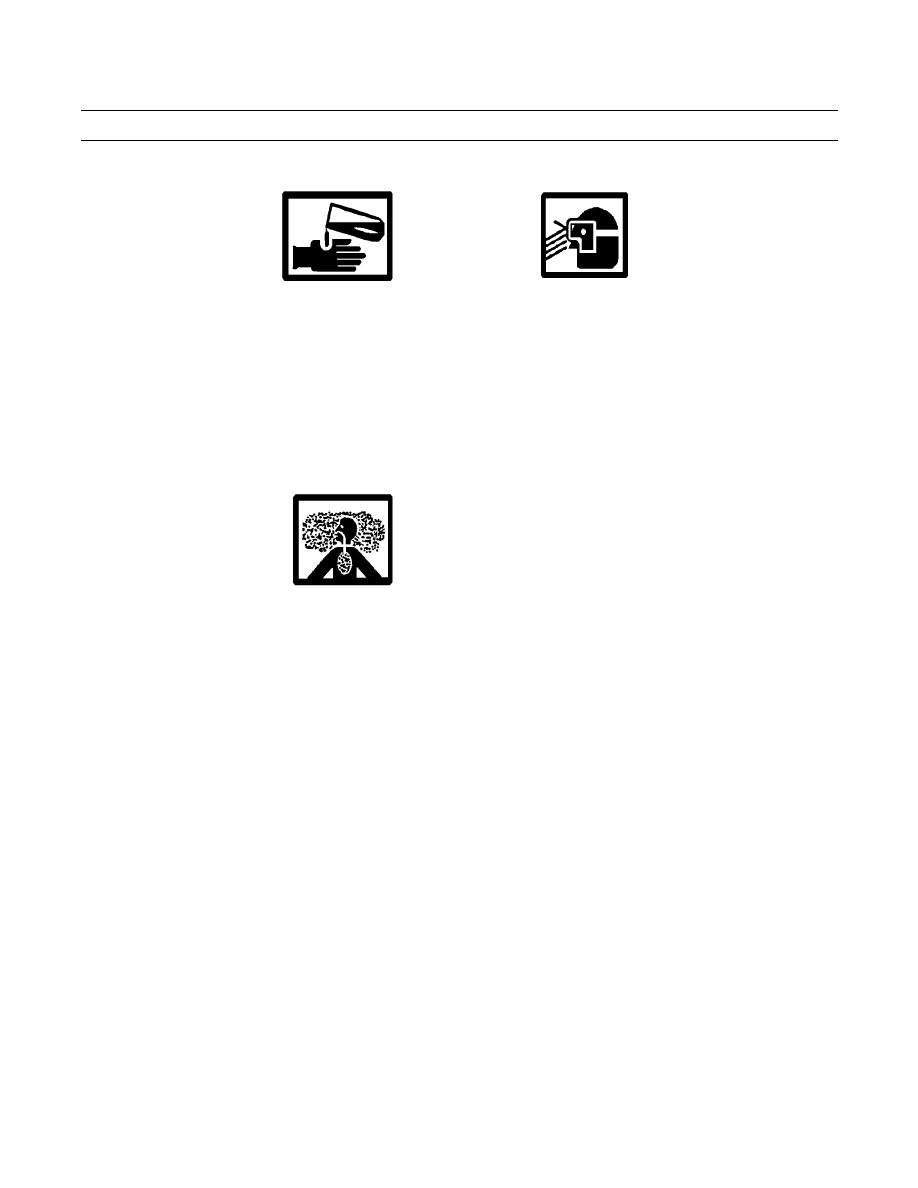 |
|||
|
|
|||
|
|
|||
| ||||||||||
|
|
 TM 9-2320-303-24-2
AIR CONDITIONING SYSTEM TROUBLESHOOTING AND TESTING - CONTINUED
0227 00
SAFETY PRECAUTIONS - CONTINUED
WARNING
Use care to prevent refrigerant from touching your skin or eyes. Liquid refrigerant, when exposed to the air,
quickly evaporates and will freeze skin or eye tissue. Serious injury or blindness may result if you come in
contact with liquid refrigerant.
2.
Refrigerants are safe when used under the right conditions. Always wear safety goggles and non-leather gloves while
discharging, purging, flushing, evacuating, charging, and leak testing the system. Do not wear leather gloves; when
refrigerant gas or liquid contacts leather, the leather will stick to your skin.
3.
Refrigerant splashed in the eyes should first be treated with a few drops of sterile mineral oil in the eyes, then rinsed
with a weak boric acid solution. Do not rub the eyes. Call a doctor right away.
4.
Refrigerant splashed on the skin should be treated the same as for frostbite: gently pour cool water on the area, but do
not rub the skin. Keep the skin warm with layers of soft, sterile cloth. Call a doctor right away.
WARNING
Do not work in an area where refrigerant may contact an open flame or any burning material, such as a ciga-
rette. When it contacts extreme heat, refrigerant breaks down into poisonous phosgene gas which, if
breathed, causes severe respiratory irritation. Do not breathe the fumes from an open flame leak detector.
5.
Even though refrigerant does not burn, when it contacts extreme heat or flame, poisonous phosgene gas is created. This
gas is also produced when an open flame leak detector is used. Phosgene fumes have an acrid (bitter) smell.
6.
You must work in an area where there is a constant flow of fresh air when the system is discharged, flushed, charged,
and leak tested using an open flame leak detector.
7.
Changes in both federal and state laws will affect the way air conditioning systems are serviced. Under current federal
laws, refrigerant must be recovered and recycled by all users to protect the environment, and not released into the atmo-
sphere. Many service operations not directly involving the air conditioning system require the release of the refrigerant
charge.
8.
Because of its very low boiling point, refrigerant must be stored under pressure. To prevent the refrigerant cans from
exploding, never expose them to temperatures higher than 125F (52C). Never leave refrigerant cans in the sun, and do
not store them in sun-exposed areas where heat can build up, such as in gloveboxes, automobile trunks, etc.
0227 00-4
|
|
Privacy Statement - Press Release - Copyright Information. - Contact Us |